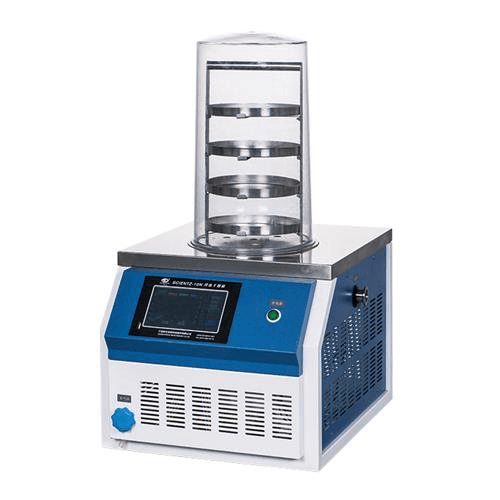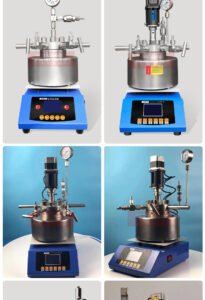Exploring the Benefits and Applications of Freeze Drying Equipment for Laboratories
Freeze drying, also known as lyophilization, is a critical process in many laboratory settings, particularly when it comes to preserving sensitive materials. Freeze drying equipment plays a vital role in maintaining the stability and integrity of samples, chemicals, and biological substances. This process involves freezing a material and then removing the water through a vacuum, ensuring that the structure and functionality of the sample are preserved for future use. In this article, we will explore the significance of Freeze Drying Equipment, its applications, and how it can benefit laboratories seeking to optimize their processes.

What is Freeze Drying Equipment?
Freeze drying equipment is designed to remove water from materials without compromising their quality. The process involves freezing the material to a very low temperature, followed by the application of a vacuum to allow sublimation—where the water turns directly from ice into vapor. This method is particularly useful in the pharmaceutical, biotechnology, and food industries, where preserving the structural integrity of a substance is essential.
EquilRxnLab, a leading supplier in laboratory equipment, offers a range of high-quality freeze drying systems, such as the AKGJ-10 Multi-Manifold Top-Press Freeze Dryer. This equipment is engineered to meet the diverse needs of laboratories, offering advanced features that improve efficiency and reliability.
The Benefits of Freeze Drying Equipment
- Preservation of Sample Integrity
One of the primary advantages of using Freeze Drying Equipment is the preservation of the original characteristics of the sample. Unlike other drying techniques that may involve heat, freeze drying avoids any significant temperature change that could alter the molecular structure of the substance. This is particularly important for sensitive biological materials, chemicals, and pharmaceuticals. - Long-Term Storage
Freeze drying enables long-term storage of materials without the risk of degradation. By removing the water content and lowering the activity of enzymes and microorganisms, freeze-dried samples can be stored for extended periods, reducing the need for frequent reprocessing. - Enhanced Stability
Freeze-dried materials are often more stable than their liquid counterparts. The removal of water minimizes the chances of spoilage and degradation, making them ideal for applications where long-term stability is required, such as in drug production and research. - Preservation of Active Ingredients
In industries like pharmaceuticals and biotechnology, freeze drying helps maintain the effectiveness of active ingredients. This is especially true for vaccines, antibodies, and other biological agents that require delicate handling. Freeze drying ensures that these substances retain their potency over time.
How to Choose the Right Freeze Drying Equipment
When selecting Freeze Drying Equipment, it’s essential to consider the specific requirements of your laboratory. Factors such as the type of material being dried, the scale of production, and the specific features needed will all influence the decision-making process.
The AKGJ-10 Multi-Manifold Top-Press Freeze Dryer from EquilRxnLab is an excellent example of advanced freeze drying technology. It features an Additional Surface Area of 0.08 m², providing ample space for a range of materials. The equipment also comes with 3 trays with a diameter of φ180 mm, offering flexibility for various sample types. It is capable of supporting up to 560 vials with φ12 mm diameter and 285 vials with φ16 mm diameter, making it suitable for large-scale applications.
Moreover, the system supports multiple flask sizes, including 100 ml, 150 ml, 250 ml, and 500 ml, providing a versatile solution for laboratories with varying needs. This system is designed to ensure uniform drying, maximizing both efficiency and output.
For more details on this product, visit the AKGJ-10 Multi-Manifold Top-Press Freeze Dryer.
Applications of Freeze Drying Equipment
Freeze Drying Equipment is indispensable in various industries and applications:
- Pharmaceuticals and Biotechnology: Freeze drying is crucial for preserving drugs, vaccines, and proteins without altering their bioactivity. It is used extensively to produce freeze-dried pharmaceuticals that can be reconstituted for medical use.
- Food Industry: Freeze drying is widely used in the food industry to create lightweight, shelf-stable food products while retaining the nutritional value and flavor. This method is commonly used for preparing snacks, ready-to-eat meals, and ingredients for emergency food supply kits.
- Chemical and Environmental Studies: Laboratories involved in chemical research often use freeze drying to preserve compounds that are sensitive to heat or moisture. This technique is also used for environmental studies where the preservation of soil, water, or plant samples is required.
- Cosmetics and Personal Care: Freeze drying is used in the cosmetics industry to create highly concentrated active ingredients in a stable form. These are then rehydrated and used in products like facial masks, serums, and creams.
How Freeze Drying Equipment Works
The process begins by freezing the material to be dried at temperatures well below its freezing point. The sample is then placed under vacuum, and as the pressure decreases, the frozen water transitions directly into a gas, bypassing the liquid stage. This process, known as sublimation, results in a dry, stable product that retains its original structure, composition, and effectiveness.
Freeze drying is a time-consuming process but ensures the highest quality of preservation. The rate of sublimation is carefully controlled to ensure that delicate materials, such as enzymes, proteins, and biological samples, remain unaffected by the process.
Conclusion
Freeze Drying Equipment is an indispensable tool for laboratories across many industries, from pharmaceuticals and biotechnology to food processing and environmental research. By using advanced systems like the AKGJ-10 Multi-Manifold Top-Press Freeze Dryer from EquilRxnLab, laboratories can improve their processes and ensure the preservation of sensitive materials for future use. Freeze drying not only extends the shelf life of substances but also maintains their stability, making it a critical step in many scientific applications.
For more information, visit the product page at AKGJ-10 Multi-Manifold Top-Press Freeze Dryer, check out EquilRxnLab’s YouTube Channel, follow us on Instagram and Facebook, and browse through our full product catalog.



